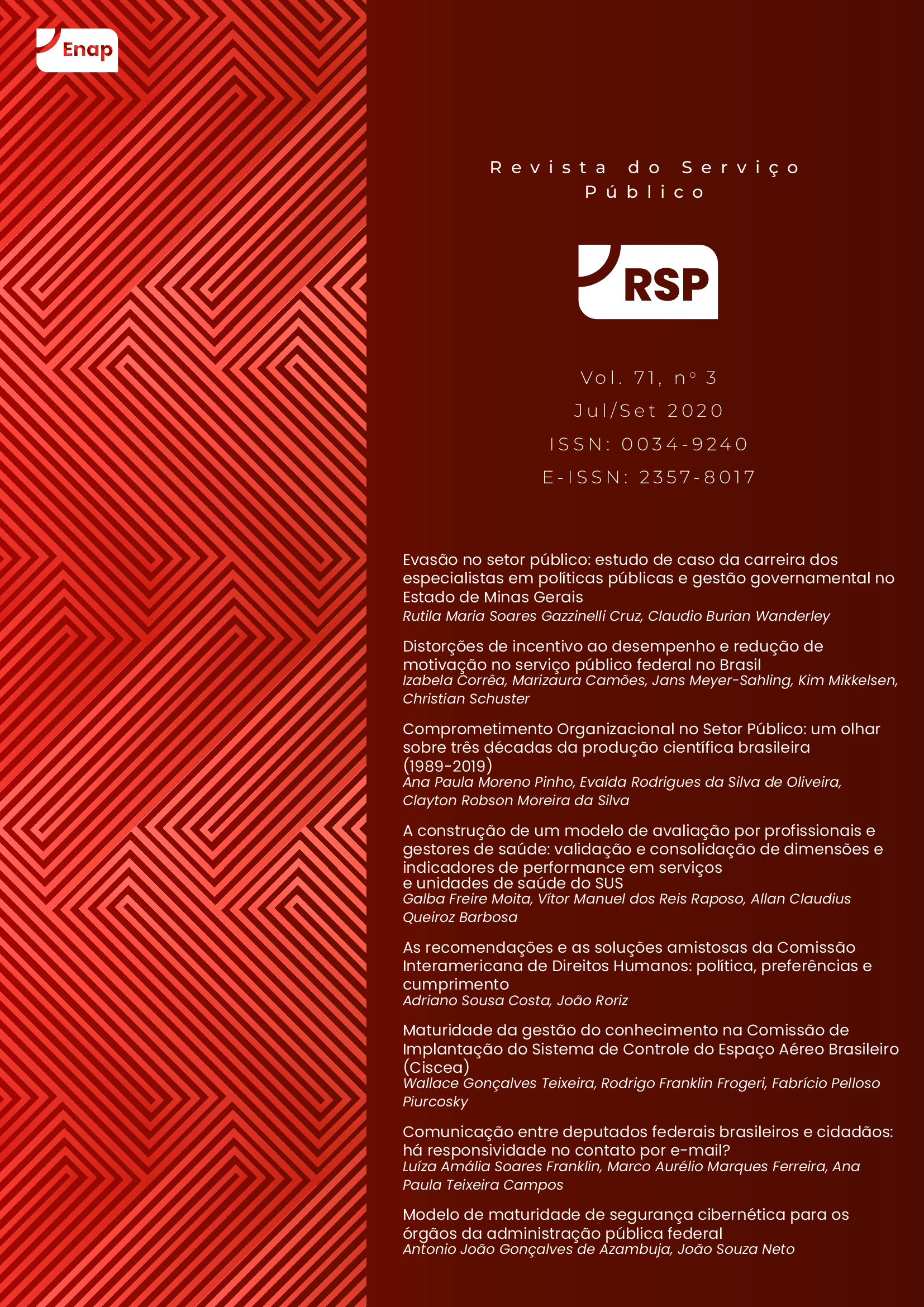Organizational Commitment in the Public Sector: a look at three decades of Brazilian scientific production (1989-2019)
DOI:
https://doi.org/10.21874/rsp.v71i3.3507Keywords:
organizational commitment, public sector, scientific productionAbstract
The bond between the worker and the organization has gained prominence in the field of organizational behavior, resulting in the evolution of studies that address constructs such as organizational commitment. In the public sector, the importance of investigating this construct is urgent, since committed workers might be a way for the public sector to execute its objectives efficiently. Thus, this study aims to analyze the current stage of Brazilian scientific production on organizational commitment in the public sector. To this end, a thorough literature review was carried out, from 1989 to 2019, in which 850 documents of articles available in scientific bases and journals websites were analyzed, in addition to articles published in the annals of four scientific events. At the end of the analyzes, 77 scientific articles on organizational commitment in the public sector were registered. Based on these articles, theoretical and methodological attributes of the research were discussed, such as: research approach; focuses and components of commitment; scales used; antecedents, consequences and moderating variables of the commitment; and the public sector sphere in which the studies were developed. The results indicate a preponderance of studies with a quantitative approach, focused on the organization and that analyzed the commitment from the perspective of the affective, continuance and normative components. The use of the scale proposed by Meyer and Allen stands out. Among the antecedents, consequents and moderating variables, socio-demographic variables, policies and practices of human resources, job satisfaction and turnover intention stood out.
Downloads
Downloads
Published
How to Cite
Issue
Section
License
- A RSP adota a licença Creative Commons (CC) do tipo Atribuição – Uso Não-Comercial (BY-NC).
- A licença permite que outros remixem, adaptem e criem obra licenciada, sendo proibido o uso com fins comerciais.
- As novas obras devem fazer referência ao autor nos créditos e não podem ser usadas com fins comerciais, porém não precisam ser licenciadas sob os mesmos termos dessa licença.
- Ao publicar o artigo na RSP, o autor cede e transfere para a ENAP os direitos autorais patrimoniais referentes ao artigo.
- O artigo publicado na RSP não poderá ser divulgado em outro meio sem a devida referência à publicação de origem.
- O autor que tiver o artigo publicado na RSP deverá assinar o Termo de Concessão de Direitos Autorais (em momento oportuno a editoria da Revista entrará em contato com o autor para assinatura do Termo).



